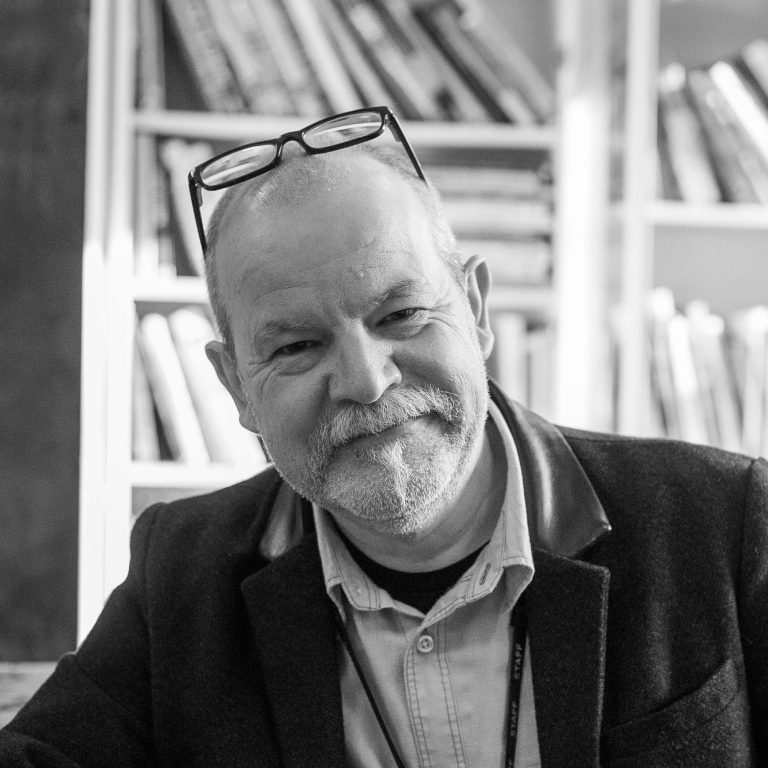BA (Hons) Visual Communication
Today’s creative image-maker has the opportunity to move into uncharted territory as the traditional boundaries of the graphic designer, illustrator, and artist increasingly overlap. Our BA Visual Communication degree offers you the exciting possibility to explore the intersection where illustration, design, and creative practice meet. Through this course, you will gain a solid grounding in the principles of communication as we encourage you to test and stretch your creative boundaries, whilst developing your individual artistic potential.
The study of Visual Communication is a multi-disciplinary, multi-dimensional subject. Crossing borders between subject areas and professions; its structure is, at its heart, about narration. During studio-based design projects, set and live project briefs, self-initiated work, specialist workshops and lectures, you will learn how to give a message shape and form using creativity to generate influence. This may involve text, typography, and image, put together in a coherent, relevant, and inspiring unity. Workshops may include photography, printmaking, software, and motion graphics.
You will be given the freedom to explore innovative and experimental methods to develop your practice as a professional visual designer. Our small class sizes ensure that you will receive frequent one-to-one guidance from our highly-skilled lecturers, allowing for a more tailored learning experience. By the end of the course, you will have the tools to help define your future and find an individual voice within the field of Visual Communication. You will also have the opportunity to showcase your work through exhibitions and industry events in both Cambridge and London.
WHAT TO EXPECT FROM THIS COURSE
YEAR ONE
The first year of this course is designed to expose you to the fundamentals of this exciting creative discipline, whilst exploring and experimenting within the breadth of possibilities available within the world of visual communications.
Through diverse creative briefs, engaging practical workshops and lectures you will be provided with the opportunity to apply these creative processes, from critical thinking to practical hands-on skills, across different mediums. You will be given the space to experiment and take risks, as you start to define your individual style.
YEAR TWO
In the second year of this course, you will be given the freedom to take control of the direction of your visual language as you start to explore the area of industry that most aligns with your future aspirations. You will take part in more challenging live projects and/or collaborations as you examine the subject in greater depth, continue to develop your core skills and deliver creative solutions.
As the focus becomes more industry facing, you will be encouraged to continue to question convention, disrupt, take risks and use creative thinking throughout. Project briefs, workshops, lectures and crits will shift towards looking at visual communication from a professional and commercial perspective where working practice, time management and design processes are examined on a personal level. During this exciting time, you will begin to define the subject from your own perspective and begin to shape skills and interests for the final year ahead, while still developing your understanding of design process, research methodologies, and storytelling.
YEAR THREE
Your final year is the link between college and your career in the creative arts. During this year, you will undertake more challenging set briefs and self-initiated work as you have the freedom to examine in depth specific topics of your choosing.
Guided by tutors and industry specialists, you will work on a final project, focusing on your individual personal direction, by refining the detail and depth of existing projects or working on new initiatives. This final project should present your final visual identity and will contribute to your final body of work from which to select your own professional portfolio.
WE PROVIDE
- Your own individual workspace in the studio.
- You will be allocated personal use of an iMac.
- Studios are open 7 days a week.
- Lectures are based in your studio 5 days a week.
- One-to-one with tutors.
- Access to an extensive range of UK wide practitioners, connecting you to industry and building industry contacts.
- Small group and one-to-one assistance with essay and dissertation writing.
- Guaranteed Graduate Show in London, with no extra costs.
- Free colour printing.
- Access to an in-studio library, printmaking, and photography studios.
THE AWARD
Upon successful completion students will be awarded a BA(Hons) Visual Communication accredited by Falmouth University.
“From where I started, I would not have imagined myself doing the art I am doing now. It is mostly because we have been pushed to challenge ourselves with our art style, what we think, how we work. I think it is also to do with the close one-to-ones and how much you get back from the tutors.”
Aleks –
BA (Hons) Graphics & Illustration graduate
77%say staff value students views and opinions about the course
Data for Graphics and Illustration (Full time) at Cambridge School of Visual and Performing Arts
100%of students say teaching staff have supported their learning well.
Data for Graphics and Illustration (Full time) at Cambridge School of Visual and Performing Arts
75%in work or doing further study 15 months after the course.
Data for Graphics and Illustration (Full time) at Cambridge School of Visual and Performing Arts, over two years
VIDEO
HIGHLIGHTS
OVERVIEW
Course Location
Cambridge
Course Length
3 years (6 semesters)
Course Start
September
Tutor Support
Specialist tutor support available 5 days a week.
Studio Access
Students have access to our studios 7 days a week, from 8am to 8.30pm, Monday to Friday and 9am to 5pm at weekends.
Awarding Body
Falmouth University
English Language
Up to 5 hours per week if required
How your Work is Assessed
Visual projects with occasional written assignments and a Dissertation in Year 3.
Guest Lecturers
Our course is enriched by programmed lectures and workshops from a range of leading creative professionals.
Your Space
Each of our students has their own workspace and is provided with free colour printing. Students will also have access to an in-studio library and our photography and printmaking studios.
How we Teach
Throughout this course, students will be taught through projects, specialist workshops, guest lecturers, regular one-to-ones, and group tutorials.
Progression
Advertising, App Design, Art Director, Animation, Art Therapy, Branding/Identity, Media & Communications, Exhibition and Museum Design/Curation, Graphic Designer, Illustrator, Publishing, Printmaker, Retail Advertising/Design, Social Media, Typography, Virtual Reality, Website Designer, PR, Visual Design, Information Design, Product Packaging.
Results
100% of students praised our lecturers’ dedication to supporting their learning*
100% of students said that they had the chance to explore ideas and concepts in depth*
*National Student Survey 2024
UCAS Institution Code
C06
UCAS Course Code
W213
W214 with Integrated Foundation Year
ENTRY
Age
18 years +
Educational Level
72 UCAS points (or equivalent) gained through a Foundation Diploma or Extended Diploma, International Baccalaureate or two A Levels (or similar international High School qualification).
Students who do not meet these entry requirements will still be considered on their own individual potential to succeed.
English Level for International Students
IELTS 5.5+ (with no element below 5.5)
Portfolio
A portfolio of work showing personal work, schoolwork, finished and prepared is required for this course. Your portfolio is the chance to show us your skills and your passion. Download our guide to see what we look for in a portfolio.
STRUCTURE
YEAR 1
One of the first modules you will study is Core Practice. This module will introduce you to a range of the fundamental skills and techniques that you will need for success as your progress through the Visual Communication degree course.
Delivered through a series of practical workshops, in-studio projects and assignments, and guided by our experienced faculty of tutors, you will have the opportunity to experiment with and become confident using basic elements of Visual Communication such as: dot, line, shape, direction, tone, colour, texture, dimension, scale and movement. You will undertake individual and collaborative projects, all the while refining new methods of working, developing your idea generation and creative thinking, and exploring your own visual language.
Disrupt. Challenge. Take risks. Exploration is the key theme of this module, and you will be provided the freedom to experiment with a wide range of materials, techniques and thought processes. This module encourages you to challenge popular conceptions and constraints within the design process, exploring and utilising your personal individual language, as you undertake a number of varied and interesting assignments. You will be prompted to reflect on your own work, evaluating its effectiveness in visual communication and assessing how you can introduce your new skills and methods into your individual creative approach.
Creative Expression is a module that will allow you to build on the idea development processes studied in earlier modules, taking your ideas and bringing them to life as you find creative solutions to exciting briefs set by your tutors. Assignments are designed to develop your conceptual thinking and you will explore what possibilities a career in Visual Communication in the modern world can bring.
You will undertake individual and collaborative projects, which will encourage you to expand your skills in visual communication. There is a focus on developing design skills in text and image manipulation, composition, colour, tone, form, and texture, as well as an increased understanding of choice and effective use of media. Projects will encourage you to explore contemporary issues through your individual artistic expression.
The world of art and design is broad and complex. Guided by our expert lecturers, within this module you will explore the cultural context of art and design, and their impact on the wider world. You will investigate a wide range of creative products, typically drawn from Graphic Design, Film, Animation, Gaming and Graphic Novels, to analyse and identify the significance of the particular sociohistorical, cultural, geographical, philosophical and ideological frameworks in which they were created and of which they are communicating. This module concludes with a written assignment.
The aim is to demonstrate how practice relates to a broader context of visual communication, to encourage an enquiring and reflective approach to practice and to engage students in the production of a written assignment.
YEAR 2
Professional Voice is a module that focuses on you as an individual artist. With the assistance of your tutors, you will identify the areas of Visual Communication that resonate with your ambitions, and work with them to enhance the artistic skills you may find challenging.
Assignments will encourage inquisitiveness and open-minded thinking as you explore new visual communication methodologies. This module will focus on individual creative exploration as you identify and investigate different methods for producing visual outcomes. Projects will provide you with the freedom to reflect on your own way of working, with the intention of developing a more focused use of design processes as you generate Visual Communication ideas.
Research is essential in the artistic design process. Through this module, you will be provided with an insight into research methodologies and their application to the creative industries. The module will cover research of past and current practitioners and theorists, research through experimenting and prototyping, and research linked to specific creative problem-solving exercises. On completion of this module, you will have gained valuable employability skills through the understanding of preparatory research and prototyping. You will also be confident in employing a range of research methodologies relevant to your creative discipline, which will help prepare you for your final year dissertation or video essay.
Within the Applied Process module, you will learn how to approach assignments and produce creative solutions while taking into consideration aesthetic, social, environmental, moral and ethical issues affecting us all today. You will be encouraged to explore a wide range of media and their potential for visual communication.
Projects will require you to develop and utilize your research skills, from both a historical and contemporary perspective, as you determine how and where these newly acquired skills can be applied. Throughout this module, you will be encouraged to continue developing your conceptual, analytical and explorative thinking, while identifying areas of personal development.
This module focuses on the notion of you as a Visual Communicator and instigator or ‘author’ of your own creative project. In consultation with your tutor, you will devise a project that focuses on an individual direction of creative enquiry. This project should enable you to stretch your critical thinking skills and demonstrate your problem-finding, problem-solving, research and professional presentation skills developed in earlier modules to produce a creative outcome.
YEAR 3
In your third year, project briefs become more challenging as you are pushed to stretch your creative abilities and idea generation. This module will include assignments set by your tutor, but also self-initiated assignments that encourage you to reflect on your work in terms of the professional, commercial, ethical, sustainable and contextual influences that surround it.
There will be a focus on developing your critical evaluation skills with regard to your own work, as well as the importance of analysis, innovation, collaboration, creative problem solving and idea generation when approaching an assignment. You will be encouraged to continue investigating different methods of Visual Communication as you prepare your work for submission. Submission will consist of no fewer than 3 completed projects, which are selected by you from work completed in this module, work that you feel best represents your identity in Visual Communication. By the end of this module, you will be confident in your use of visual language and ability to produce strong creative outcomes to briefs.
This Dissertation module is designed for you to explore in-depth a subject of your choosing. On completion, it should take the form of a presentation of your proposed investigation, followed by either a written dissertation or an annotated video essay.
Working independently, you will need to utilise all the knowledge and skills acquired through the variety of modules studied during your course. The aim of your Dissertation is to: focus in-depth on a specific self-selected topic and develop and evidence a thesis supported by research and a theoretical framework. The Preparation module, studied in Year 2, will have provided you with the necessary skills to define research questions, conduct research and employ appropriate texts in the formation and support of your thesis, critically analyse texts and artefacts, assess the value of sources, and structure your own response.
Your final module provides the perfect opportunity for you to bring together everything you have learned over the course of your degree and showcase your potential in Visual Communication. You will develop a self-initiated project, focusing on a theme of your choosing, that demonstrates your own specific personal area of interest within the creative industry.
Your final project should showcase your understanding of design processes and skills in idea generation, research, contextual awareness and strength in Visual Communication techniques, methods and disciplines. The work developed and completed in this module will form part of a public exhibition, sharing your work with a wider audience.
ADDITIONAL COURSE COSTS
View the Tuition fees for BA (Hons) Visual Communication course.
At CSVPA all students have access to a fully equipped studio with IMACs running Adobe Creative Suite, scanners, regular and large format printers. Printing is free for all students, and basic materials are supplied.
Students have access to printmaking and screenprinting facilities, and basic materials for these are supplied.
They also have access to video and photography facilities, and basic materials for these are supplied.
All academic resources (books, software access, other research materials) are supplied as part of the course. Students have access to Office 365 and centralised storage of files on OneDrive.
The costs of materials for your work will depend heavily on the medium you choose to work in, and the format and scope of the work you produce. Below are the anticipated additional costs that you are likely to incur. Costs are for each year.
| Relevant Items | Cost Indication | Total |
| Visits to London for shows, exhibitions, etc, twice per year. | £30 for train fare (less if you have a rail card) Average £10 entrance fee. | £80 |
| Sketchbooks, layout pads | Up to £15 each | £360 |
| Markers, pens, pencils, etc | Up to £100 | £100 |
RELATED COURSES
TALK TO US
Do you want to find out more about CSVPA? Talk to our student advisors now.














